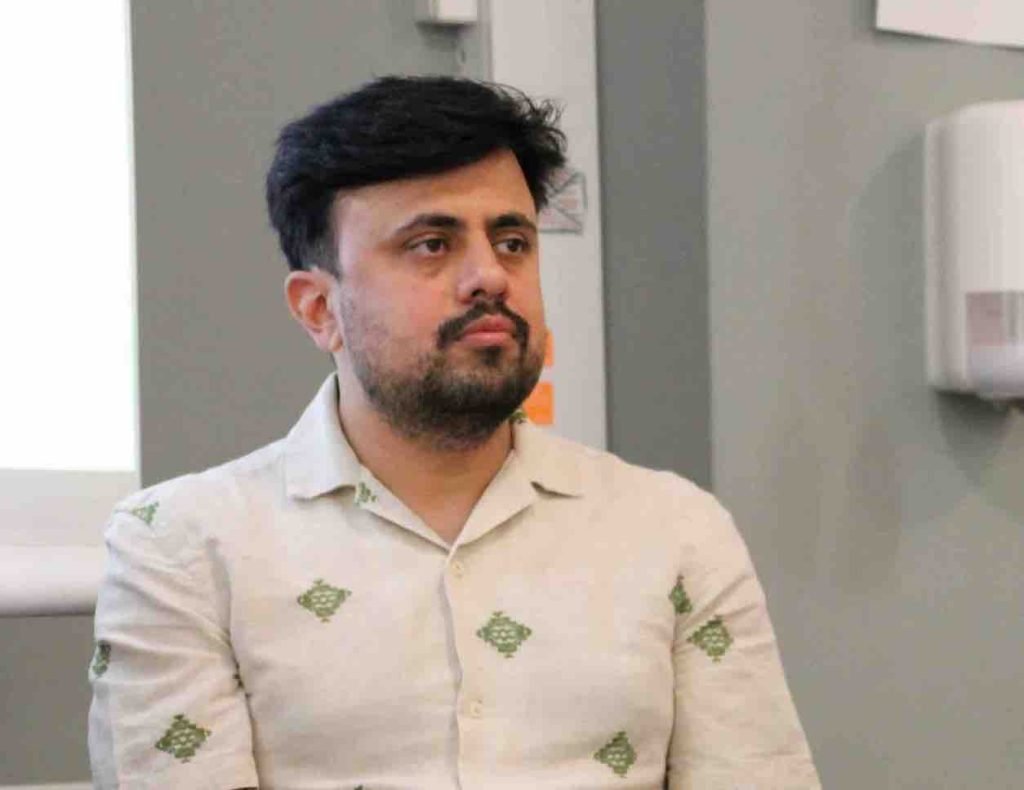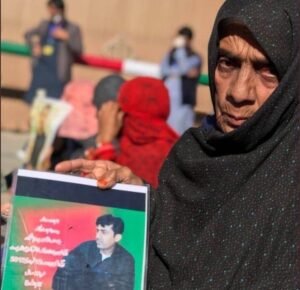Afghanistan’s Struggle for Power: Considering the Political Motivations Behind Religious Taliban

Wasil Faizi is a Vienna-educated author, analyst, and research coordinator at the INSAN Foundation. Photo: @Mikael Nielsen
By Wasil Faizi
As we examine the complex interactions that make up Afghanistan’s current situation, the Taliban’s threat becomes less purely religious and more political. As we peel back the layers, we discover a mix of political and economic motivations as well as ideological conflicts at work. This is consistent with a pattern in Afghan history where the Taliban and their conservative ideology stand resolutely in opposition whenever progressive forces emerge to forge a better future.
The Taliban exhibit uncanny similarities to power-hungry organizations with secular agendas, despite their religious rhetoric. While they claim to uphold religious principles, their actions around the world paint a different picture by getting involved in international politics, looking for funding, and supporting foreign interests. The Taliban’s dual role – professing religious motives while forging a secular path to power – is revealed in more detail by this paradoxical stance.
Afghanistan’s recent history shows that the society’s progressive forces who aimed to oppose the religious groups were wrong to think that proving their “Muslimness” was crucially important for their political legitimacy; they did not need to show that war was about establishing the rule of Sharia Law. Some analysts still attribute their failures to these misconceptions. Their failures, however, were not due to missing evidence of their Muslimness. Instead, they lost because they lacked a well-organized political strategy and a clear plan (like long-lasting political parties and movements), which could have helped them win over the public. As a result, they were defeated by the country’s religious factions, which put them in a weaker position during important international conflicts.
On the other hand, religious reactionary groups like the Mujhaideen, Taliban, and even those who toppled King Amanullah Khan, were backed by international colonialist and imperialist supporters, and consistently emerged victorious. The subsequent separation of these groups from one another—such as the emergence of the Taliban from the Mujahideen—and their prioritization of political ambition over religion reveal their primary objectives: power and the advancement of self-interest—these are as opposed to the establishment of political and social systems based on religionor dedication to responding to the basic human needs of governed individuals.
Shifting Focus: Political Dialogue for Afghan Progress
The most important lesson learned from the past century’s history is that there is no need to engage in lengthy discussions with the Taliban, Mujahideen, Daesh—known as ISIS, or any other religious group to prove oneself or delve into religious disputes. It is unnecessary to prove one’s Muslimness to religious groups. Debates concerning the philosophy, history, truth, and scientific study of religion are indeed valuable for understanding religion’s place among progressive political and social groups. Engaging in such debates with militant religious groups, however, is futile. Instead, discussions should be political and concerned with fundamental human rights, addressing worldly problems, such as, bread, work, and land, and striving for a brighter future for the people. After more than four decades of war, the differences between what Afghans want and what foreign-backed, power-thirsty groups want are clear.
Religious groups have never resolved among themselves age-old debates aimed, for example, at determining who is a true Muslim and who is not. Such debates are unproductive and unnecessary. It is also unrealistic to hope that they might have a positive outcome—that they might result in backward religious groups handing power to genuine representatives of the people who would allow the country to live peacefully and direct the country to a peaceful future. Religious debates with the groups in question cannot be won because religion is not their ultimate goal; for them, religion is a means to gain power, and this is variously manifested. These groups have often manipulated religion for their own interests and forced people to adhere to their constructed beliefs.
Overall, political discussions focused on basic human rights and addressing real-world problems are more effective than religious debates with these groups. Prioritizing politics aimed at serving social interests over religious discourse offers the Afghan people a greater chance of achieving a peaceful and prosperous future.
Exploring the Role of Power Struggles in Religious History and Afghanistan’s Current Crisis
Religious history provides countless examples showing that the goals of religiously-motivated are never purely religious—they are always after political power. Otherwise, why would the Taliban and the Mujahidin kill one another, and why are ISIS and the Taliban thirsty for each other’s blood? After all, they are all people of the same religion. Simply stated, conflict over power has determined the path of Islam since its beginning and, of course, Islam is not unique in this regard; the histories of Christianity and many other religions show comparable developmental processes and conflicts. There are libraries full of historical documents related to the deaths and wars of all 119 caliphs, and these paint a picture of a vast struggle for power that continues to this day. Every time a small group of religious authorities gained power, the small group took the fates of countless people into its hands and directed them with full force and brutality. They did so not only by controlling politics, the economy, and culture but also life at large, and thus the life of every individual.
On the other hand, historical figures have often accused Afghan modernists of being unfamiliar with the language, tradition, customs, and culture of the Afghan people, and this has been interpreted as the greatest reason for their failures. This argument is baseless because it denies historical facts. Afghans have never naturally opposed reforms or even revolutionary changes that led to positive social outcomes. They have never, as a way of life, been interested in delving into the details of religious texts and fixating on interpretations of their Halal and Haram elements; they have instead embraced Islam as a mix of traditional values that include many Afghanized aspects. Historically, this was not something they thought to do en masse. Rather, the Afghan people have always welcomed positive changes that improved their material and daily lives. Because such changes were very few and short-lived, history does not clearly reflect them. Furthermore, history was primarily written by Orientalists who saw “barbaric” elements everywhere.
In short, the Afghan people accepted religion as a tradition that was never radical. Yet they have been forced to react to the touch of radical groups that have suppressed them for centuries—groups that considered religion their monopoly and used it as a tool to rule. The people never applied damaging terms like “kafir,” “apostate,” and “spy” to label individuals targeted for religious persecution. These problems frequently result from organizations wanting to keep society uneducated because it makes it easier for them to seize and maintain power when people are ignorant.
Today, Afghan society is thoroughly disgusted with the Taliban and does not agree with their dictatorial and absolutist religious rule. There is no work, education is substandard to non-existent, women are completely excluded from society, and a small religious group of all male Pashtuns holds power. In this way, the Taliban have forced women, girls, men, ethnic and religious minorities, and many other subordinated groups to flee Afghanistan. There is simply no place in Afghan society for those who do not think like the Taliban, and certainly not for those who feel threatened by them.
The Afghan people and the new political generation must understand that the politicians who sold Afghanistan out for the past 20 years will not lead the way out of this “Dark Age.” This historical and inherited burden is on our own shoulders. It is up to us to find a solution to the conflicts and to consider the needs and rights of all the people in this land. Whatever the solution is, it should address the problems common to all Afghans. Anything short of this will prevent us from finding lasting solutions to the ongoing problems.
It is up to us, the Afghans, to ignore the unnecessary and destructive religious disputes of power-seeking militants and to focus on finding solutions that address the worldly concerns and desires of all Afghans. No one is free until we are all free.
Wasil Faizi is a Vienna-educated author, analyst, and research coordinator at the INSAN Foundation. He specializes in politics, social issues, and migration, with a focus on migrants, refugees, and asylum seekers in Austria. Faizi is a co-founder of the Afghan Diaspora Network and contributes insightful articles to the website.
Note: The contents of the article are of sole responsibility of the author. Afghan Diaspora Network will not be responsible for any inaccurate or incorrect statement in the articles.










